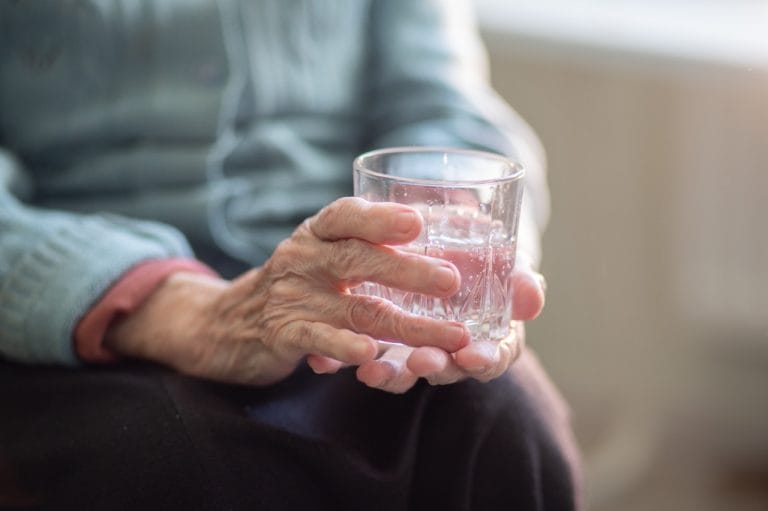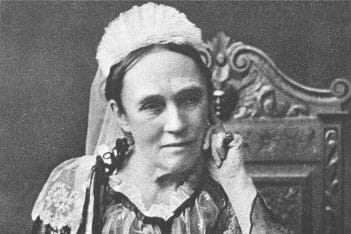Nutrition & Hydration Week

Nutrition and Hydration Week has taken place annually since 2012. Its purpose is to bring people together to highlight and educate on the importance of eating and drinking well and on maintaining health and wellbeing in health and social care.
Why is good hydration and nutrition important?
Maintaining good hydration and nutrition is important for physical and mental wellbeing. Having a balanced, healthy diet that includes items from the main food groups – carbohydrates, proteins, fruit and veg and dairy – ensures the intake of the nutrients, vitamins and minerals that we need. It means that we can feel our best.
Eating well protects you against many chronic diseases such as heart issues, diabetes and cancer. Eating a variety of foods, and consuming less salt, sugars, saturated fats and processed food, are essential for a healthy diet.
This generally comprises a combination of the following:
- Staples like cereals (wheat, barley, rye, maize or rice) or starchy tubers or roots (potato, yam, taro or cassava).
- Legumes (lentils and beans).
- Fruit and vegetables.
- Foods from animal sources (meat, fish, eggs and milk).
Planning ahead helps ensure dietary intake remains balanced, and at Elizabeth Finn Homes this is carried out by our meal planning team, headed up by Jeremy Fisher. With ingredients and meals carefully planned, our residents are provided with a balanced diet without having to think about it. All they need to do is enjoy.
Good hydration
Good hydration is one of the most important aspects of a healthy diet.
Our bodies are very good at giving us hunger signals, tiredness signals, when to visit the bathroom, but not so good at letting us know we are dehydrated until we are very dehydrated.
In general, your body needs 1.5 – 2 litres of fluid per day to be well-hydrated.
Water is the best way to fight dehydration, little and often throughout the day. If a faster solution is needed for rehydration, water with electrolytes helps ward off a headache or other mild dehydration-related issues.
There are several signs that your body needs hydration. Dark and strong-smelling urine is a clear indication that you need to drink more fluids. This can be accompanied by dizziness or feeling lightheaded, feeling thirsty or tired and experiencing a dry mouth.
A couple of tasty Tips to add hydration.
It’s not a drink, but watermelon is 92% water. Any time you eat watermelon, you’re getting water and a hefty dose of vitamin A, vitamin C, and electrolytes.
Coconut water is nature’s version of a sports drink. It contains five main electrolytes: potassium, magnesium, calcium, phosphorus, and sodium. Like a sports drink, it also contains sugar.
If you are dehydrated, what should you avoid?
There are drinks that can make you more dehydrated, such as drinks with caffeine or alcohol. So, avoid coffee, tea, and fizzy, soft drinks. When it comes to alcoholic beverages, the higher the alcohol concentration, the more dehydrating the drink. That’s why it’s always good to have a glass of water with your glass of wine.
Nutrition and Hydration Needs of Older Adults
Adequate nutrition and hydration are essential for the body’s overall functioning and for the maintenance and repair of cells and organs.
Poor nutrition in older adults most often presents as significant weight loss, protein deficits, dehydration, or pressure injuries and malnutrition is a common issue in the elderly and those needing care.
Those over 75 years of age are at the highest risk of malnutrition and the British Nutrition Foundation predict that the number of people vulnerable and in this category will double in the next 25 years.
Recognition of malnutrition among healthcare workers has increased and we work hard in our homes to follow national guidance on screening and nutritional care.
Malnutrition is associated with poorer recovery and increased infection, hospitalisation, re-admission and long-term ill health. Good nutrition and hydration care is therefore essential to avoid these issues and can help increase independence, reduce falls and increase wellbeing.
Care home residents often have a unique, complex mix of health-care needs that can be accompanied by loss of appetite or difficulty with eating and drinking. Older people living with severe dementia may forget to eat or even forget how to eat, and those with neurological conditions may have swallowing difficulties or problems with self-feeding.
Good nutrition ensures that as well as risk of malnutrition being identified, people have access to and are guided in the consumption of food that not only meets nutritional, but also cultural and religious needs and preferences.
How do we tackle nutrition and hydration at Elizabeth Finn?
We work as a team! It is crucial that all staff members, from our resident chef to our housekeeping team, are aware and informed on the issues of nutrition and hydration.
We raise awareness through regular daily team meetings and ensure residents and relatives are also well-informed so that we can tackle any issue early on.
As well as our own team, we work with GPs, other health professionals and outside providers.
We deliver personalised care, regularly assessing each resident and provide individual solutions to deal with any nutrition or hydration issues.
Mealtimes
Mealtimes are very important to us at Elizabeth Finn and we provide a restaurant-style environment with a daily menu and plenty of choice. Our dining rooms are stylish and beautifully laid out. Residents have the option to eat in their rooms if they prefer and we also cater for visitors, family and friends.
Food and Mood
Enjoying good, tasty food helps our mood. Sharing this with good company even more so. We help to keep our residents happy through the provision of our dining experience and planned, seasonal menus.
Often, when we feel low, it can affect food choices and the inclination to eat. There are also certain foods that can have mood-enhancing effects too. When our diet is lacking in certain vitamins and minerals, it can make us feel sluggish, lack energy and therefore lower our mood.
Long gaps without eating can lower our energy levels and therefore our mood can be affected. We need fuel for our bodies and brains like a car needs petrol which is why we look at the needs of all our residents on an individual basis. We might introduce healthy snacks if necessary to boost energy and nutrients between meals, and we monitor low mood and its affect as part of our daily care routine.
This Nutrition and Hydration Week all our homes will be focusing even more on the importance of a healthy diet. Our Spring menus are being introduced and we hope that residents and staff will enjoy and benefit from all the well-balanced, tasty food our catering teams work hard to create, with expertise but also love.


